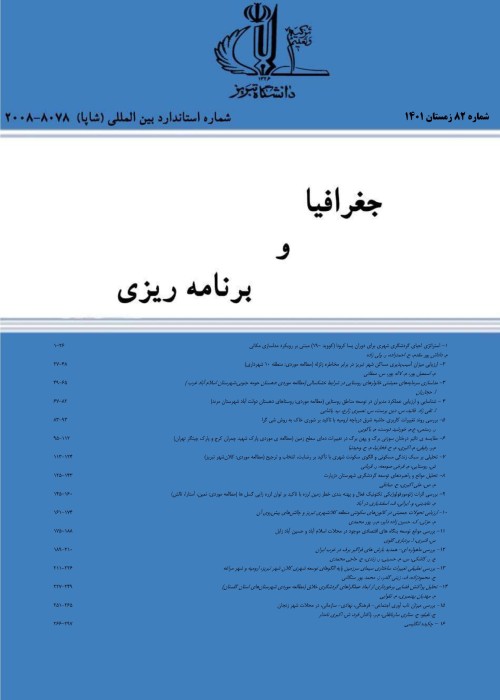Analyzing Spatial Relationship between Smart- Making and Sustainability in Urban Spaces (Case Study: Zone 6 of Tehran City)
In beginning of third millennium era, cities because of population growth and urbanization have been faced by increasing challenges such as urban poverty, lack of infrastructures, informal settlements, growth of pollutions, reduction of life quality, and finally growth of unsustainability. In this situation, finding new and less- cost solutions are more necessary for attaining sustainability. Therefore, this research reasons that smart- making, by having indicators of smart governance, smart environment, smart economy, smart mobility, smart living, and smart people, is effective approach for attaining sustainability (in economic, social, environmental and physical dimensions). Research method is correlation method, namely there is a logical relationship between smart- making and urban sustainability. Data gathering has been done using library and survey methods (by questionnaire, observation and interview tools). Information has been analyzed using descriptive and deductive tests (includes of multinomial Regression, Pearson correlation, One sample T-test, ANOVA Varian's, and Beta Coefficient). Case study is neighborhoods of zone 6 Tehran city, which are 18 neighborhoods according to municipality dividing's. Indicators reliability has been done using Cronbach's alpha, and their validity has been done using Face validity. Results show that there is a direct relationship between smart- making and sustainability that sustainability of nighbourhoods increases by growth of smart- making. Nighbourhoods of Arzhantin- Saei and Daneshgahe Tehran that have the most smart- making scale, simultaneous have the highest sustainability level, and Nighbourhoods of Ghezel Ghale, Gandi and Abbas Abad that have the least smart- making scale, simultaneous have the lowest sustainability level.
- حق عضویت دریافتی صرف حمایت از نشریات عضو و نگهداری، تکمیل و توسعه مگیران میشود.
- پرداخت حق اشتراک و دانلود مقالات اجازه بازنشر آن در سایر رسانههای چاپی و دیجیتال را به کاربر نمیدهد.


